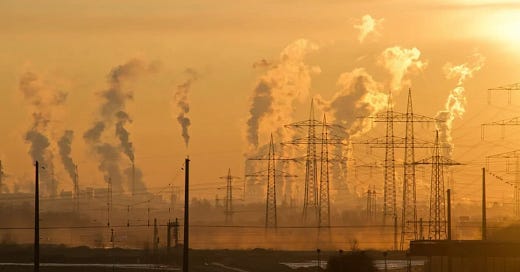Lawsuit Over Pollution in Majority-Black Louisiana Neighborhoods Can Move Forward, Court Says
A federal appeals court just gave the green light to a civil rights lawsuit that’s been a long time coming — one that accuses local officials in a south Louisiana parish of allowing polluting industries to flood majority-Black communities with toxic plants.
On Thursday, the 5th U.S. Circuit Court of Appeals in New Orleans ruled in favor of three faith-based community organizations that are suing St. James Parish. The lawsuit alleges the parish has engaged in racially discriminatory land-use policies by concentrating petrochemical facilities — the kinds that spew harmful pollutants — in predominantly Black neighborhoods.
If you’re not familiar, St. James is located in what’s often referred to as “Cancer Alley,” an 85-mile stretch along the Mississippi River packed with chemical plants. Environmental and public health advocates have called attention to this region for decades because of its staggering pollution levels and the disproportionate health impacts on Black residents.
The lawsuit, which was filed in March 2023, is pushing for a moratorium — basically, a freeze — on any new petrochemical construction or expansion in the parish. And there’s a reason behind that ask: At the time the suit was filed, 20 out of the 24 industrial facilities in the parish were located in just two districts — both with majority-Black populations. That’s no accident, according to community leaders.
“We’ve been sounding the alarm for far too long,” Gail LeBoeuf, a lifelong St. James resident and co-founder of the advocacy group Inclusive Louisiana told the Associated Press.
“A moratorium is desperately needed to stop the growth of more polluting industries in our neighborhoods. Too many lives have already been lost to cancer,” she added.
And the data backs her up. The Environmental Protection Agency (EPA) reported back in 2003 that St. James Parish had cancer death rates higher than the national average. More recently, EPA screening tools have flagged both majority-Black areas in the parish as being at high risk of cancer due to toxic emissions from nearby industrial plants.
What’s more, the lawsuit argues that these industrial expansions have desecrated the community’s history — literally. Many of the petrochemical plants in Louisiana are built on or near former plantations, where enslaved people were buried. The plaintiffs say that industrial development has destroyed or limited access to those ancestral cemeteries.
The case had previously been dismissed by a lower court, which ruled that the claims were too old because they focused on a 2014 land-use plan. But the federal appeals court disagreed. The judges pointed out that the 2014 plan was just one piece of a much larger pattern of alleged discrimination. The lawsuit, they said, includes plenty of claims that show an ongoing problem with how the parish approves land for industrial use.
The court also recognized the plaintiffs’ right to sue for damage done to the burial grounds of their ancestors — a deeply personal and painful issue for many in the community.
“This is a real vindication of their struggle,” said Pamela Spees, an attorney with the Center for Constitutional Rights, which is representing the plaintiffs. “This case is about long-standing, ongoing racial discrimination. Now we finally get to address those claims head-on.”
For residents like LeBoeuf and organizations like Inclusive Louisiana, this ruling is a big step forward in the fight for environmental justice — and for basic human dignity in a region that’s paid a steep price for industrial profit.
Thank you for reading The Kicker! Let me know your thoughts below.
For more news be sure to subscribe to The Kicker and follow Ashlee Banks on Twitter, TikTok and Instagram @ashleembanks.





This has been going on for so long. I really hope they get it together this go round.